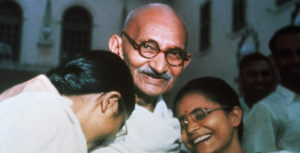James Mill’s reputation has fallen on hard times. Few will mark the 250th anniversary of the distinguished historian and colonial administrator’s birth by laying bouquets on his grave. Those who have studied him are more likely to show up today at St Mary Abbots in Kensington with brickbats instead.
Some would say he had it coming. The doyen of India’s nationalist historians, R.C. Majumdar, has said that Mill “suffered from a strong dose of racial prejudice and ignorance about ancient Hindu culture”. Likewise, for the Stanford historian Priya Satia, Mill was little more than a propagandist for empire, an apologist for “Britain’s civilising mission”. To be sure, there is plenty in Mill’s triple-decker History of British India to support this view. “The Hindu,” Mill writes, “like the eunuch, excels in the qualities of a slave.” In the Muslim, he discerned “the same insincerity, mendacity, and perfidy”. India was a “rude” and “backward” society.
But to carp about a clutch of infelicitous phrases is to miss the wood for the trees. The charge of racist imperialism, of course, isn’t easily resisted in our time. Understanding the thought-world of the 19th century, however, requires more than a mindless aggregation of poorly-aged gaffes. Reflexive cries of “Orientalism” will not do. The truth is that Mill was a radical egalitarian ahead of his time.
If the History took the form of a scathing sermon, it was only because its author was a sour man. His impatience with Indian tradition must be taken as a proxy for his frustration with British tradition. Railing against the caste system was a way of railing against the class system. Born in Angus in 1773 to a shoemaker and smallholder, Mill had a keen awareness of status. His mother had married down. Mill’s benefactress, who put him through Edinburgh University, that centre of the Scottish Enlightenment, reminded him of his station when he fell in love with her daughter, whom he was tutoring. Wilhelmina Stuart was hurriedly married off to the seventh baronet of Pitsligo, very much against her will. In her dying breath, apparently, she would call out Mill’s name, and he would name his daughter Wilhelmina.
Mill carried his hatred for the aristocracy into maturity. It didn’t help that, studying for the Kirk, he had to moonlight — like the character in Parasite — by teaching the privileged sons and daughters of the titled nobility. Disillusioned with the ministry, he reinvented himself as a freelance writer in London, married, and sired nine children.
Mill had never been to India. It was poverty and precarity that prompted him to write his History, a job application masquerading as a 2,000-page love letter to Progress, in 1818. In it, Mill made a virtue of his shortcomings, spinning his lack of first-hand experience, not to mention his monolingualism, into a commitment to objectivity. But no matter. Ruth Benedict wrote The Chrysanthemum and the Sword, arguably the greatest work of 20th-century anthropology, without ever setting foot in Japan, and the East India Company’s head-hunters duly recognised Mill’s equally impressive achievement. On the strength of it, Mill was placed in charge of examining the Company’s prodigious correspondence, a position he held until his death — as a very rich man — in 1836.
Proclaiming the creed of Utilitarianism, the History seemed to come out of nowhere. At the time, the Company men who ran the subcontinent were traditionalists to a man — committed, in the first viceroy Warren Hastings’s phrase, to “reconciling the people of England to the nature of Hindustan”. Indians, by their account, were incorrigible. It was the Company’s job to interpret their way of life. Mill disagreed: the point was to change it.
It may appear that in tut-tutting at the nabobs who went native, Mill shared the reforming ambition of the radical Clapham Sect, which believed in putting the heathens to rights with the aid of its militant brand of Christianity. Yet Utilitarianism was an altogether different proposition. For one thing, it belonged to the Enlightenment tradition. Indeed, Mill and his mate Jeremy Bentham thought in universalist terms, where once even Voltaire held that different rules applied in the “oriental despotisms” of the East.
So it was that where, like obliging Erasmus students on cultural exchange, the likes of Hastings and his successor Charles Cornwallis coolly accepted — appreciated even — the inequities of the caste system as a fact of life, Mill vehemently denounced the “detestable views of the Brahmins” in rather colourful terms. Caste was “a degrading and pernicious system of subordination”, and the Hindu “system of priestcraft” was “built upon the most enormous and tormenting superstition that ever harassed and degraded any portion of mankind”. It was for this reason Mill described Hindus as “the most enslaved portion of the human race”. The enormities of untouchability, in particular, made a deep impression on him: “Those wretched outcastes had no resource for subsistence excepting either the bounty of the established classes, to whom they were objects of execration and abhorrence, or the plunder of those same classes, a course to which they would betake themselves with all the ingenuity of necessitous, and all the atrocity of much injured, men.”
Contrast this with the head-in-the-sand observation of Mill’s nemesis, the Bombay governor Mountstuart Elphinstone: the condition of the lower castes “was much better than that of the villains of the Middle Ages or any other servile class with which we are acquainted”. What’s more, while Mill was drawing attention to the plight of India’s underclass, Elphinstone insisted that such a “servile class” had ceased to exist in the early 19th century.
Our latter-day Elphinstones, of course, still like to bang on about cultural relativism, defending primordial hierarchy as “alternative modernity”, primitive savagery as “alternative justice”, shamanic quackery as “alternative medicine”. These are fanciful sleights of hand. It’s an uncomfortable thought, but too much sympathy for an alien society can easily shade into a naive exculpation, if not outright endorsement, of its most hidebound traditions.
Some of Mill’s contemporary critics, such as Lord Bhikhu Parekh, complain that the Utilitarians tipped the balance too far in the opposite direction. For nearly 40 years, to 1855, the History was the established textbook at Haileybury College, the Company school in Hertfordshire. It was insinuated by early Indian nationalists, including Bankim Chandra Chatterjee and R.G. Bhandarkar, that Mill had spawned a whole generation of Indian Civil Service apparatchiks inimical to Indians, a foreign ruling caste as removed from hoi polloi as the native Brahmin elite. Not so. To the traditionalist credo of “live and let live”, the Utilitarians had one of their own: “Human nature is the same in Cawnpore as in Cheapside.” Ideology trumped culture. Far from being a homogeneous mass of traditionalists, Indians, too, had their diminutive reforming currents. The heirs of the Scottish Enlightenment found allies in the freethinkers of the Bengal Renaissance.
Mill’s greatest contribution, however, was his stab at bettering the lot of the Indian peasantry. This is a side of him generally ignored by decolonial historians, for it sits uncomfortably with their Manichean worldview. In Mill’s time, two systems of land tenure prevailed: Cornwallis’ zamindari system, predicated on middlemen who served as tax-farmers and prevalent in Bengal, and Thomas Munro’s ryotwari system, widespread in the South and North-Western Provinces, wherein the state took a share of the produce directly from peasants. Both were perversions of pure capitalism. Mill’s solution was to bring all land under public ownership. He was inspired by David Ricardo, who had held that “the interest of the landlord is always opposed to every other class in the community”. It followed for the Utilitarian Mill that the “greatest happiness of the greater number” could only be secured if the parasitic rentier interest was eliminated.
It should be stressed that, despite being a radical egalitarian, Mill was no Marxist avant la lettre. His vision turned on free trade and individual enterprise, both shackled in equal measure by government and go-betweens. Here, then, was a rather quaint, Right-wing case for nationalisation. A big state was dead weight, he argued. As universal landlord, government could extract the tiniest rent to conduct its business and educate the masses, and so eliminate taxation altogether. As he put it in his History, “light taxes and good laws; nothing more is wanting for national and individual prosperity all over the globe”.
What of good laws? Here, too, the cocksure know-it-all that that he was, Mill had a ready answer: abolish juries and judicial procedures, investing competent judges with autocratic powers. Mill and his mentor Bentham had no time for the Whig fetishisation of checks and balances. The separation of powers was pooh-poohed in Utilitarian circles. Betraying a vestigial Protestantism — he had in fact developed his own eccentric faith — Mill hoped that mass education and simpler legislation would render the legal profession redundant and every man his own lawyer. More importantly, where Company traditionalists supported having separate legal codes for Hindus and Muslims, and preferential treatment for Brits, Mill believed there ought to be only one law for everyone.
These were big, bold reforms. Needless to say, Mill’s startlingly original assault on privilege did not go down well with the men on the spot, many of them of aristocratic and gentry stock. Land reform along the lines proposed by Mill was briefly piloted in the Bombay Deccan, but then abandoned as impracticable. Spurred by developments at home — the Great Reform and Slavery Abolition Acts — a soupçon of social reform ensued in British India from the 1830s on, admittedly more of Whiggish than Utilitarian stamp, outlawing suttee and enabling widow remarriage. But then, in 1857, the deus ex machina of the Great Rebellion detonated. For a brief moment, it appeared that Britain’s empire in India was teetering on the edge of collapse. Lessons were learned, and the blame laid squarely on reformist zeal.
In the autopsy of the revolt that followed, the view from London was that traditionalism was a better doctrine to rule India than Utilitarianism. One could either keep the moral high ground or keep an ear to the ground — but not both. So it was that the traditionalist consensus that ran from Clive of India in the mid-18th century to Elphinstone in the mid-19th, fleetingly interrupted by the Utilitarian moment, resumed for another 100 years until independence in the mid-20th. Ultimately in the grand scheme of empire, Utilitarianism was little more than a blip, a pointillist dot shrouded by the thick brush strokes of traditionalism. But of its existence, and brief influence, there can be little doubt.
Mill himself, it needs stressing, was no saint. Like Whitman, he contained multitudes — embarrassing contradictions even. Iconoclastic in some ways, he was utterly conventional in others. For one thing, his impeccably liberal premises led him to conclusions that were incontrovertibly authoritarian. Utilitarianism, after all, preached the doctrine of happiness, not liberty — of good government, not self-government. Mill himself ruled out democracy for Indians. Likewise, to the dismay of his contemporaries — his son John Stuart Mill especially — he argued against extending the franchise to women, who, like children, had no interests independent of the family patriarch.
In philosophical mode, he struck a rather different note. Each individual, he wrote in his Essay on Government, was the best judge of his own interests. Suffragists a century on, then, were staying true to Mill’s principles rather than his prejudices, as indeed were Indian nationalists after independence, when they abolished zamindari and outlawed untouchability. It’s an irony of history that it was the Indians, not the British, who put into practice the theories James Mill advanced in his History of British India.
Disclaimer
Some of the posts we share are controversial and we do not necessarily agree with them in the whole extend. Sometimes we agree with the content or part of it but we do not agree with the narration or language. Nevertheless we find them somehow interesting, valuable and/or informative or we share them, because we strongly believe in freedom of speech, free press and journalism. We strongly encourage you to have a critical approach to all the content, do your own research and analysis to build your own opinion.
We would be glad to have your feedback.
Source: UnHerd Read the original article here: https://unherd.com/





